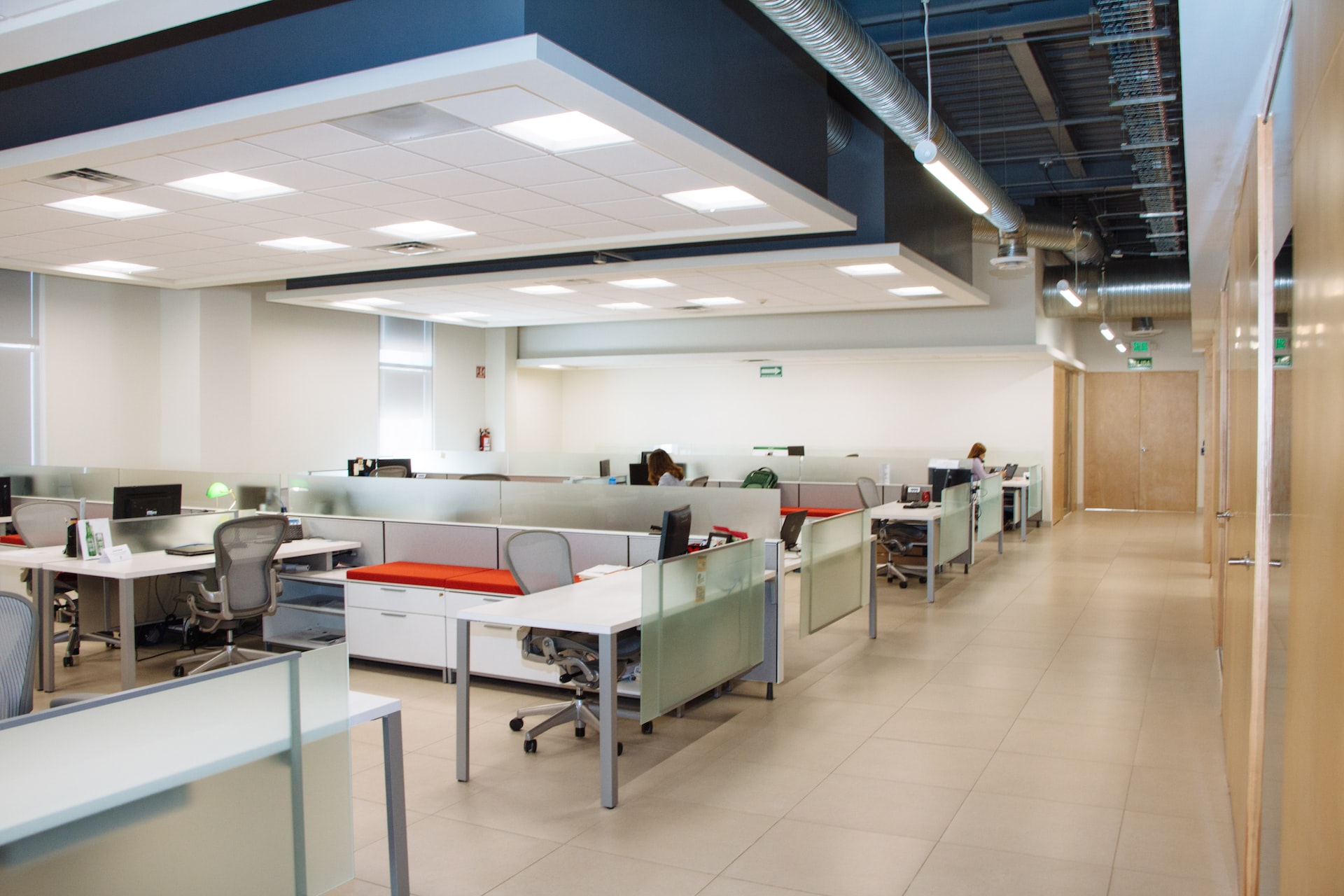Common Office Cleaning Mistakes for Businesses to Avoid
Even with regular commercial cleaning services, many businesses make mistakes every day when it comes to keeping the office clean. Whilst office cleaning mistakes can seem to be of no real importance, when you add up the consequences of each little mistake, the resulting time and energy needed to fix minor issues at a later date can be quite costly.

Here are some of the most common office cleaning mistakes that businesses should take care to avoid.
Forgetting hard to reach areas
An out of sight, out of mind approach to cleaning can lead to a buildup of dirt, dust and bacteria in hard to reach areas, such as behind furniture. It’s important to ensure that you instruct cleaners to tackle these hidden spaces on a regular basis to help keep your workplace free of bacteria that could lead to illness in the office.
Remember to also tackle cobwebs in corners and high places in your office. Whilst the odd dusty cobweb may seem to be insignificant, failing to dust them away could create a bad impression of a business for visitors.
Ignoring spills
In a busy office environment, spills can be a regular occurrence as tea and coffee are carried around, however, if left ignored, spilled liquids can lead to carpets and other floor surfaces becoming heavily stained. Whilst a single spill might not seem important to employees, it’s important to encourage workforces to clean up after themselves and be accountable for their accidents as over time, long-term damage could be done to floors and office furniture.
Using the wrong cleaning materials
As well as choosing a commercial cleaning company that uses environmentally friendly cleaning products, it’s important to ensure that harsh chemicals are avoided when you take care of small cleaning tasks in between professional cleans. Harsher chemicals can have many negative effects, not only causing damage to office surfaces, but to the environment. The fumes from harsher cleaning chemicals can also be unsafe to office workers, increasing levels of staff illness.
Using dirty sponges and rags
Whilst in many cases, office staff take care to clean up after themselves in communal areas, a common mistake is that the same dirty sponges, rags and mops are left out for use, long after they should have been replaced. Old cleaning equipment harbours many germs, so when they are used to conduct cleaning tasks, they do much more harm than good.
Neglecting overflowing bins
Whilst emptying bins is always something that professional office cleaners will take care of, in a busy office, waste paper bins and rubbish bins can fill up extremely quickly, so if office cleaners are not coming on a daily basis, bins can quickly overflow and harbour all kinds of germs and bacteria and risk attracting insects and other pests (including rodents). As a result, overflowing bins are likely to have a number of negative consequences when it comes to workplace productivity.
Ignoring clutter
Whilst office cleaning takes care of the office as a whole, it’s hard for cleaners to perform a thorough job if office workers fail to keep a tidy, uncluttered workspace. Not only does a cluttered workspace lead to a cluttered mind, reducing productivity, it also results in the buildup of germs on desks and other work surfaces when cleaners are unable to clean properly.
Failing to disinfect surfaces
If surfaces appear to be clean, it’s easy enough to assume that they are and neglect to disinfect surfaces. It’s especially important to take time to disinfect surfaces in common areas each day to help reduce the spread of germs, but each employee should also take care to wipe down their desk or work surface each day with a disinfectant to kill germs and bacteria.
Professional Office Cleaning Services
If you are seeking to increase the frequency of your commercial cleaning services, or wish to find a new office cleaning company, you can contact MCS today by calling 0800 612 0437, or find your nearest branch here.
With branches around the UK, we are here to help create a clean and safe commercial environment.
